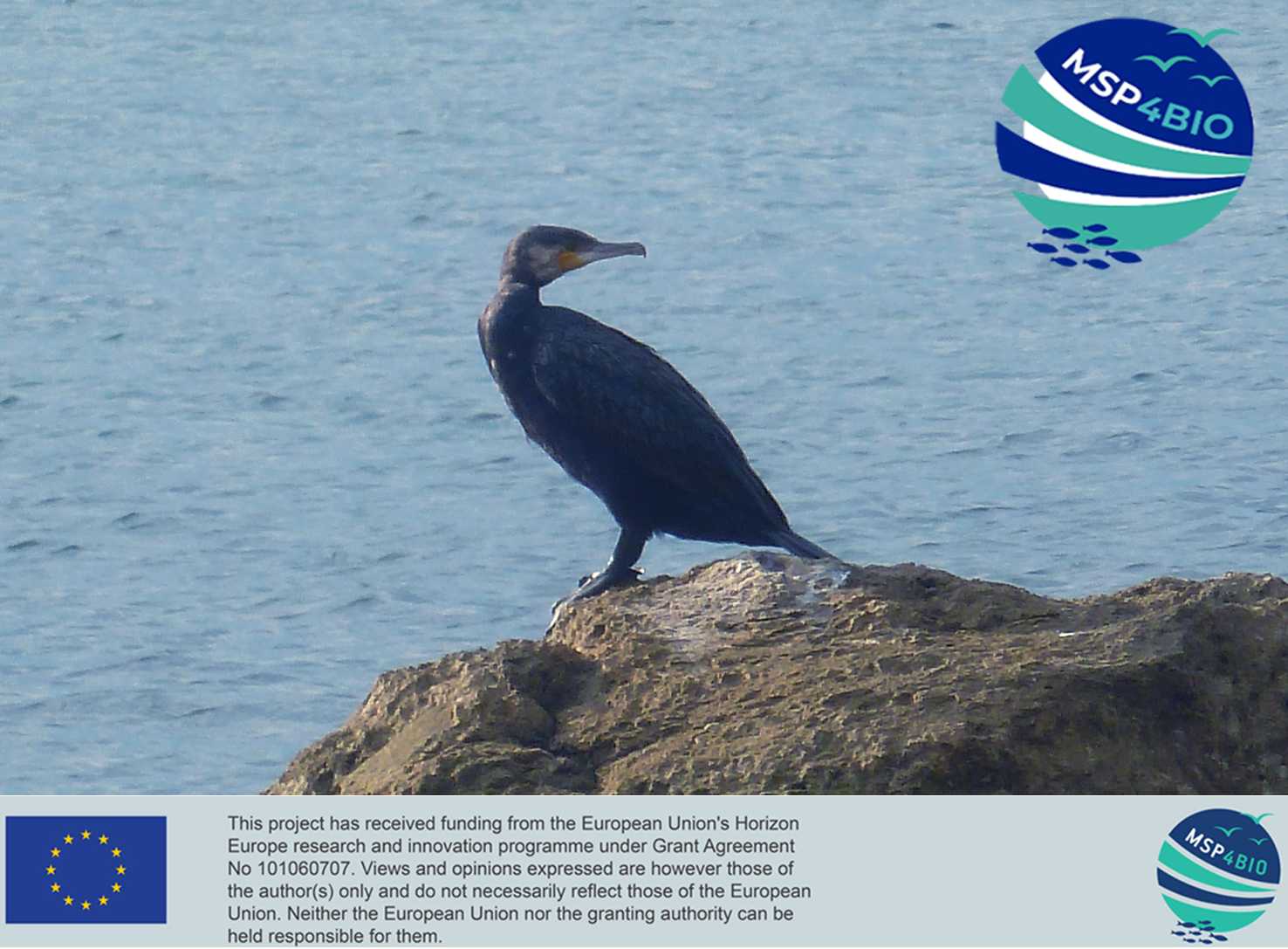MSP4BIO
Improved Science-Based Maritime Spatial Planning to Safeguard and Restore Biodiversity in a Coherent European MPA Network

The MSP4BIO project (Improved Science-Based Maritime Spatial Planning to Safeguard and Restore Biodiversity in a Coherent European MPA Network) is funded by the European Commission Horizon Europe Programme (Research and Innovation Actions), Grant Agreement: 101060707-MSP4BIO-HORIZON-CL6-2021-BIODIV-01.
PROJECT DURATION: The MSP4BIO will run for 3 years (01 August 2022 - 31 July 2025).
PROJECT WEBSITE: https://msp4bio.eu/
TWITTER: https://twitter.com/MSP4BIO_Project
The MSP4BIO will be carried out by an interdisciplinary consortium coordinated by s.Pro - sustainable projects (SPRO), Germany. The other participants are: CEREMA, France; Center for Coastal and Marine Studies (CCMS), Bulgaria; Gdansk Maritime University (GMU), Poland; University of Cadiz (UCA), Spain; Universite De Nantes (UNANTES), France; University of Tartu (UTARTU), Estonia; WWF European Policy Office (WWF-EPO), Belgium; Coastal Research and Planning Institute (CORPI), Lithuania; The Baltic Marine Environment Protection Commission (HELCOM), Finland; CNR ISMAR, Italy; Vlaams Instituut Voor De Zee (VLIZ) Belgium; Suomen Ymparistokeskus (SYKE) Finland; University of Azores (UAC), Portugal; National Institute for Marine Research and Development Grigore Antipa (NIMRD), Romania; Priority Action Programme Regional Activity Center (PAP/RAC), Croatia; Seascape Consultants Ltd. (SEASC), United Kingdom.
PROJECT OBJECTIVES: The MSP4BIO has an overall aim to support the implementation of the EU (European Union) Biodiversity Strategy (EUBS) 2030, the Convention on Biological Diversity (CBD) post-2020 framework, as well as the EU Green Deal, by mainstreaming biodiversity into policy decisions on different governance levels, and by developing an integrated socio-ecological management of the marine ecosystems. To address the above-mentioned challenges, the main objective of MSP4BIO is to develop and demonstrate the ways in which knowledge-based Maritime Spatial Planning (MSP) becomes a vehicle and a tool for the protection and restoration of biodiversity in line with several policy objectives, within its more general objectives of promoting sustainable blue growth, and integrating maritime policies.
Specifically, MSP4BIO will develop an integrated flexible socio-ecological management to cope with a rapidly changing environment for coastal, offshore, and deep-sea ecosystems and validate its concrete applicability in 6 test sites in 5 European Sea Basins (Atlantic, North, Baltic, Mediterranean and Black Sea). The management relies on improved systemic biodiversity prioritization criteria for MPAs and EBSAs, based on the best available scientific knowledge on biodiversity attributes, and linking spatial ecological features (including migratory ones) with socio-economic considerations.
MSP4BIO uses a participatory approach to co-develop ecosystem services tradeoff scenarios to prioritize the areas and assess the suitability of spatial and strategic management measures from the ecological and socioeconomic perspectives. The approach integrates the criteria and objectives of relevant maritime and biodiversity policies as well as the EUBS 2030 to ensure coherent policy implementation. As such, the project will develop and improve approaches, methods, and tools to feed scientific knowledge, making it of direct use to MSP planners and MPA managers, while producing site-specific results informing site-specific, and broader policy processes and decisions.
MSP4BIO also integrates stakeholder knowledge through the local Communities of Practice (CoPs) in each of the test sites made out of MSP local planners, MPA managers, sectoral regulators and industry representatives as well as NGOs.
CCMS ROLE: in MSP4BIO CCMS is co-leader of the work package on Operationalisation and participation in test sites together with the National Institute for Marine Research and Development (NIMRD), Romania. CCMS leads also the task on final recommendations, transferability and scale-up of effective biodiversity mainstreaming in MSP and co-leads the Black Sea test site – Bulgarian cross-border area. CCMS takes also active participation to all other Work packages and tasks.
